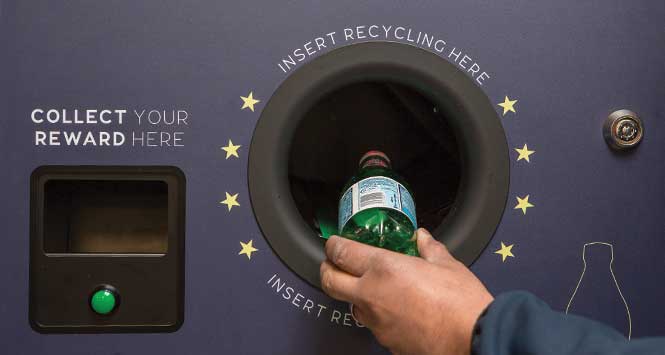With continuing economic uncertainty, the fallout of Brexit and a range of other challenges, is it time for the Scottish Government to put its money where its mouth is and really get behind the vital local retailing industry in Scotland?
by Antony Begley
In the world of local retailing in Scotland, the only thing that seems certain these days is more uncertainty. It’s difficult, if not impossible, for the industry to make preparations for the future, when getting a half decent picture of what the future might look like is a challenge the best minds in the country can’t get their heads around.
Yet the reality is that an industry as vital to the Scottish economy as local retailing needs to be able to prepare – and it looks increasingly urgent that the Scottish Government accepts the importance of this industry and does something concrete to ensure its continued success.
In the last couple of weeks the Scottish Retail Consortium (SRC) explicitly called on the Scottish Government to put competitiveness and productivity at the heart of its Budget and Spending Review, which is expected this month.
In a new paper ‘Open for Business: Growing a more productive and competitive Scottish economy’ submitted to the Scottish Finance Secretary lasted month, the SRC highlights the profound changes affecting retail and puts forward detailed policy recommendations across key areas. These include business rates, income tax, council tax, business taxation, apprenticeship levy, charges, regulation and infrastructure.
The SRC’s argument, which will undoubtedly be welcomed by Scotland’s local retailers, is that with the devolution of further new powers, along with the uncertainty following the Brexit vote, there is an urgent need for the Scottish Government to take “tangible action” to support the retail sector and consumer confidence.
The submission was timed to appear ahead of the expected publication this autumn of the Scottish Government’s spending and taxation plans.
Specifically, the SRC is recommending that Scottish Ministers:
- Work with the industry to deliver a retail strategy which sets out a clear road-map for future tax and regulatory changes for the decade ahead
- Bolster consumer confidence by keeping a firm grip on personal tax rates, and re-evaluate whether the current plans for increases in personal taxation in 2017-18 remain sensible
- Press ahead with fundamental reform of business rates so that a modernised, sustainable, strategically coherent and competitive rates system can be in place shortly after the Barclay Review reports
- Scrap the £62.4m annual ‘Large Business Rates Surcharge’ which affects 29,000 firms, and restore poundage rate parity with England
- Ensure firms in Scotland which pay the Apprenticeship Levy directly benefit from it
- Shelve the mooted Scotland-only deposit return scheme for drinks containers, a ‘bottle tax’ which would push up prices for consumers.
David Lonsdale, Director of the Scottish Retail Consortium, said: “The retail industry was going through an unprecedented period of transition before the vote to leave the EU. With that added uncertainty, the Scottish retail industry faces significant challenges.
“The SRC shares the devolved administration’s aim of making Scotland the most competitive part of the UK to do business, however that goal has yet to be achieved. This is why we want to see a bold and ambitious Budget with Scottish Ministers using their powers to significantly improve the Scottish economy. In particular, the powers over personal taxation can have an immense impact on the health of Scottish retailers. That’s why we argue now is not the time to raise taxes on the vast majority of working Scots, which would of course impact on their discretionary spending.
“However, the Scottish Government should go further and look to reduce the burdens on retailers so they are at the very least no more onerous than elsewhere in the UK. That means scrapping the unfair Scotland-only large business rates surcharge, working with firms to ensure they directly benefit from the Apprenticeship Levy monies, and developing a joint government/industry retail strategy to support small, medium and large retailers across the country.
“The Scottish Government is rightly concerned about the potential economic impact of the Brexit vote on Scotland. However, they have the powers at hand right now to do more to encourage growth and promote productivity in Scotland. With half of VAT receipts being assigned to the Scottish Parliament, our politicians at Holyrood have a direct stake in facilitating a flourishing retail industry. Retailers will be looking to the Finance Secretary to act when he brings forward his Budget later this year.”
There is at least one sympathetic ear within the Government in SNP MSP Gordon MacDonald, recipient of this year’s Special Recognition Award at the SLR Rewards, while First Minister Nicola Sturgeon has repeated her support of the industry, including during her presentation at last year’s SGF Conference.
MacDonald said: “Last October, the Scottish Grocers’ Federation launched the first ever report on the importance of convenience stores to our villages, towns and cities. The report found that 75% of the 5,602 convenience stores in Scotland are run by small business owners, that the sector provides 44,332 jobs, and that their value to the economy in terms of gross value added is more than £0.5bn per annum. With one convenience store for every 946 people, Scotland has more such shops per head than any other part of the UK.
“But small independent retailers are under immense pressure to maintain margins and profitability so that they can have the funds to reinvest in their business. In August 2014, during the first ever parliamentary debate on the importance of convenience stores to our local economies, I quoted the Carnegie UK Trust, which stated: ‘We recognise that for many towns, the contribution of independent retailers is a crucial factor in the long-term sustainability, diversity and vibrancy of high streets’.
“The Local Shop Report 2015 confirms and justifies the view of the Carnegie UK Trust that the long-term sustainability, diversity and vibrancy of high streets is down to local shops and the convenience store sector.”
The arguments are compelling and the case is sound; let’s hope the Scottish Government recognises the importance of local retailing and delivers the “tangible action” that the SRC, the SGF and the wider industry in Scotland are looking for.







